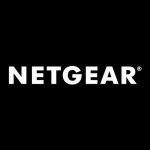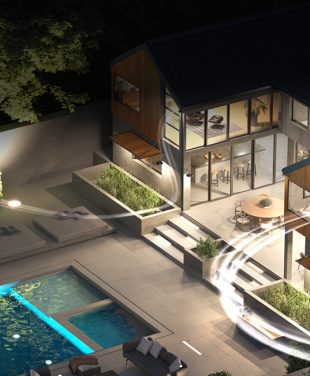IN THIS ARTICLE
- 1. Will upgrading my ISP plan improve my WiFi coverage?
- 2. If I upgrade my ISP plan, will I get double the speed?
- 3. What causes WiFi dead spots in my home?
- 4. How can I improve WiFi coverage in a large house?
- 5. Do more devices slow down my WiFi?
- 6. What’s the difference between 2.4GHz, 5GHz, and 6GHz WiFi?
- 7. How do I secure my WiFi network?
- 8. What is a mesh WiFi system and do I need one?
- 9. Can I get WiFi in my garden or garage?
- 10. How often should I update my router?
1. Will upgrading my ISP plan improve my WiFi coverage?
WiFi coverage refers to the extent to which Wireless Local Area Networks (WLANs) allow devices to connect to the internet and communicate with each other. Not all internet service providers are the same, so check your ISP plan to ensure you get the fastest available WiFi speeds. WiFi 7, the latest WiFi standard, is best for whole-home wireless coverage.
2. If I upgrade my ISP plan, will I get double the speed?
Upgrading your ISP plan is a good start, but many factors can affect WiFi speeds in UK homes. A good wireless network internet connection and a WiFi 7 router are progressive upgrades worth first considering. WiFi 7 technology is the secret behind the best AI, virtual reality, and more. The bottom line is that your ISP plan should meet the speed needs of the best WiFi 7 devices.
3. What causes WiFi dead spots in my home?

There are many causes of WiFi dead spots in homes. WiFi dead spots are frustrating, particularly if you are trying to communicate, stream, or game in real time. WiFi dead spots are common in large UK homes with thick walls that impede radio wave WiFi signals and limit WiFi access for your wireless devices. Smart homes today can include 20+ connected devices competing for bandwidth, so it may be worth considering an upgrade from your single router to a whole-home WiFi 7 mesh system.
4. How can I improve WiFi coverage in a large house?
Large homes require special WiFi solutions to connect multiple WiFi devices. A single wireless router access point can be useful but provides limited square metre WiFi coverage for internet access. WiFi mesh systems, such as the NETGEAR Orbi 970 Series, are next-level systems for addressing most WiFi coverage issues in large homes, including multi-story dwellings with many rooms and thick walls. The best mesh WiFi systems designed for large homes will future-proof your WiFi network for years to come.
5. Do more devices slow down my WiFi?
Your home network WiFi connections will suffer if you struggle with an older router, slow wireless access points, or poor ISP speeds. Adding more wireless network devices or downloading large files will only increase the load. Fortunately, the latest NETGEAR WiFi 7 routers and mesh systems are designed to make life easier with faster speeds and greater coverage for whole-home connectivity. The NETGEAR WiFi 7 System App puts the power in your hands to answer WiFi questions and manage the device load in your household, including monitoring device use and optimising WiFi system performance.
6. What’s the difference between 2.4GHz, 5GHz, and 6GHz WiFi?
The evolution of WiFi includes dual-band, tri-band, and the latest WiFi 7 quad-band systems. These systems combine one or more of the 2.4GHz, 5GHz, and 6GHz radio signal channels to transmit and receive WiFi data. WiFi 7, known as Extremely High Throughput (EHT), includes all the available frequency bands and uses quad-band technology for a dedicated backhaul channel and real-world multi-gig speeds up to 27Gbps.
7. How do I secure my WiFi network?

A large home network can include wired network devices, wireless client devices, and smart home applications. A strong WiFi password is only the start for your local area network (LAN). Your wireless router, modem, IP address, SSID, and network devices all need robust NETGEAR Security protection. The best NETGEAR WiFi 7 Routers come with a one-year subscription or a one-month trial of NETGEAR Armor Security and can include WPA3 encryption and VPN for a secure WiFi network.
It’s important to know how to secure a WiFi network. Your WiFi 7 home network can use wired Ethernet connections for high-bandwidth gaming and streaming, and wireless connectivity for Bluetooth, Apple, Android, and mobile hotspots. Fortunately, NETGEAR Nighthawk WiFi 7 Routers have built-in security, and Orbi Mesh-Systems are backward compatible, meaning your older WiFi 5 and WiFi 6 devices are part of a secure and seamless network.
8. What is a mesh WiFi system and do I need one?
Mesh WiFi consists of the main WiFi router and multiple router satellites. The router and satellites communicate with each other wirelessly or via wired Ethernet cable connections. You can add more satellites to extend the system and eliminate WiFi dead zones. WiFi mesh surpasses advanced WiFi extenders (Repeaters) with future-proofed connectivity for your home network, guest network, and smart home IoT network. Everyone under one roof can enjoy their own space for gaming, streaming, working from home, and more, with blazing-fast WiFi 7 speed and performance.
9. Can I get WiFi in my garden or garage?

There are several ways WiFi signals can travel. For a guaranteed fast and stable connection to a fixed garage or office, broadband and Ethernet cable WiFi 7 is unbeatable. This connection can be run from a single NETGEAR Nighthawk RS700S or a Nighthawk RS300 Router, or via a NETGEAR Orbi Router or Orbi Mesh Satellite. Orbi WiFi 7 satellites can be strategically positioned on a patio to deliver seamless indoor/outdoor WiFi connections for large gatherings and garden parties.
10. How often should I update my router?
If your WiFi system is several years old, it could be worth upgrading to WiFi 7 router technology to improve WiFi coverage. WiFi systems have advanced dramatically in the past few years, culminating in the latest WiFi 7 standard. WiFi 7 is the secret behind 4K/8K streaming, multi-player cloud gaming, high-def conferencing without latency, and the ability to move about the home with seamless connectivity. Now is a great time to keep your router up to date and take a quantum leap into the future of WiFi 7 potential.




